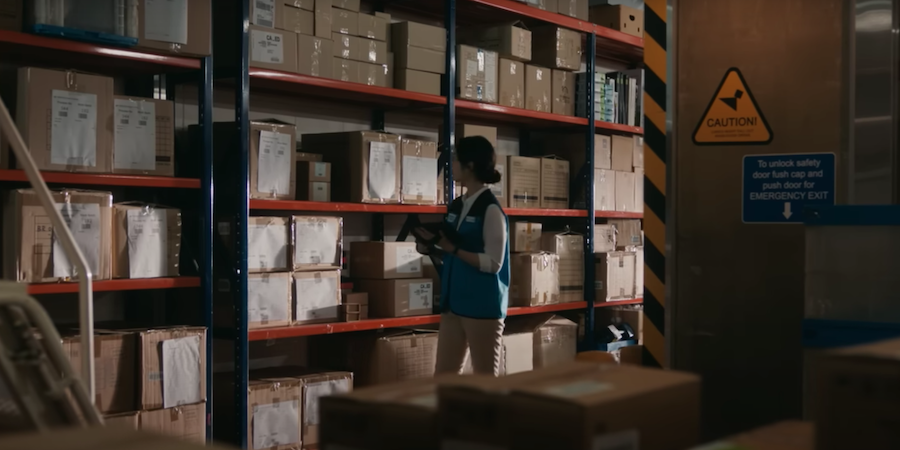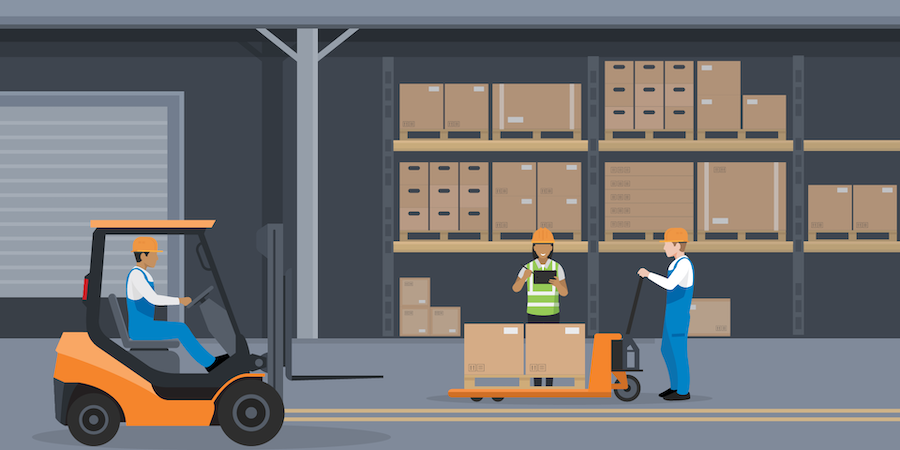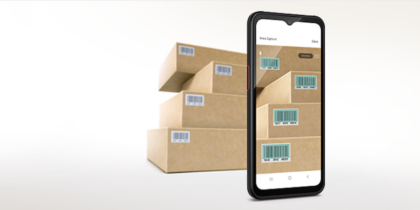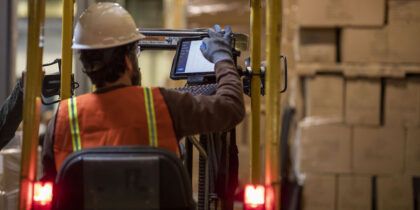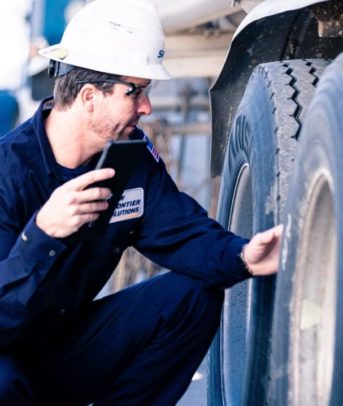As businesses adapt to customers’ growing expectations for faster service — and warehouses need to create a more productive, collaborative employee experience — many warehouse managers are recognizing the opportunity to update their mobile solutions.
According to a report from Ivanti and VDC Research that polled more than 100 professionals in warehousing and distribution roles, about 35 percent of those professionals said their current mobile solutions were nearing the end of their life. The same study advised that many Windows CE or Windows Mobile devices “have already reached their end of meaningful life and are rapidly approaching their end of extended support.”
As their selection of Android-based devices grows, the study noted, warehouse managers are shifting away from legacy Windows systems and exploring rugged devices that can withstand harsh environments.
The risk of device damage is particularly high in warehouses. In fact, traditional devices (without rugged capabilities) covered in the report received a failure rate of 19.8 percent, compared to 3.8 percent for rugged devices. On average, workers experienced 30 to 40 minutes of downtime due to device failure.
Criteria for updating legacy warehouse solutions
As existing platforms reach their end of service life, warehouse professionals are looking for replacements that deliver an enhanced user interface. Many existing mobile solutions for warehouses are built around basic text functions and a keyboard-centric design. Almost 25 percent of respondents said the next iteration will need to have a more modern, visual interface. Nearly 35 percent said they also want the ability to customize their mobile solution.
Security also ranks high as a consideration for warehouse devices. Nearly half of respondents (49 percent) said security features are among their top concerns for warehouse mobile apps, while 55 percent say security will be a driving factor in their choice of OS.
A rugged tablet built for the enterprise
Samsung’s Galaxy Tab Active4 Pro is a rugged Android tablet that meets all the criteria that warehouse professionals are looking for in a replacement device. Tested against MIL-STD-810H standards for use in volatile environments, Galaxy Tab Active4 Pro is built to withstand working in the warehouse. It’s dust- and water-resistant, and protected against vibrations, drops and extreme temperatures. The Gorilla Glass-protected 10-inch display is even sanitizer-safe, and the enhanced touch sensitivity means warehouse workers can use the tablet if their hands are wet, or if they’re wearing gloves.
Samsung’s Knox platform provides the tablet with defense-grade security, supported by biometric authentication features and device management tools for IT. Galaxy Tab Active4 Pro also comes with a water-resistant S Pen for intuitive writing and signature capture, as well as durable pogo connectors and a long-lasting replaceable battery.
Galaxy Tab Active4 Pro is also packed with features to enhance the work that warehouse employees do every day. Flexible connectivity via 5G and Wi-Fi 6, for example, means they’ll be able to stay in touch with their team and can rely on their apps to perform wherever they are. It also supports CBRS, which allows organizations to connect their rugged tablets to a private network, for real-time warehouse management and remote asset tracking.
A programmable key allows warehouse teams to map commonly used apps so that employees can access them with a single click. They can also use the programmable key to for push-to-talk (PTT) functionality, streamlining the way they communicate. Galaxy Tab Active4 Pro even has a louder speaker, so employees can hear each other more easily in a noisy warehouse.
The definitive guide to warehouse efficiency
Get your free guide to increasing warehouse efficiencies and cutting costs with mobile processes. Download Now
If employees need to scan product barcodes, an improved camera lets them tap into apps like Knox Capture and use Galaxy Tab Active4 Pro for the job, so they don’t have to walk around with a separate scanner.
Should team members need to share information with each other on an external display or if they require a desktop-like experience, Samsung DeX works lets them connect their tablet to a second screen.
Galaxy Tab Active4 Pro is not just an Android Enterprise Recommended (AER) device, it’s also a Samsung Enterprise Edition device. That means Samsung will support three OS updates, beginning with Android 12 up to Android 15. Enterprise Edition devices also come with security and maintenance updates for up to five years from initial release, and three years of product life cycle support. Samsung is also offering one free year of Knox Suite, which can help warehouse IT teams deploy, manage, secure and analyze their mobile devices.
Android vs. legacy OS
Windows used to be the primary OS in the field, but warehouse professionals today have multiple OS options to consider as they consider making upgrades. “Each platform choice offers distinct capabilities,” note the authors of the Ivanti/VDC study, “and end users will need to determine which offers the best option to support their requirements.”
This requires a thorough reevaluation of mobile device portfolios, the authors added. “For a user base that has been traditionally risk-averse … addressing this represents a critical decision for organizations focused on minimizing disruption.”
In this context, researchers say Android as a warehouse OS option is on the rise: “With the growing availability of Android-powered devices targeting Warehouse applications — in particular, wearable solutions — Android adoption is in position to scale.”
Get more expert advice on cutting costs and increasing efficiency with mobile processes in this free, comprehensive guide. And discover more innovative Samsung manufacturing solutions designed to keep your business running smoothly and securely at all times.
